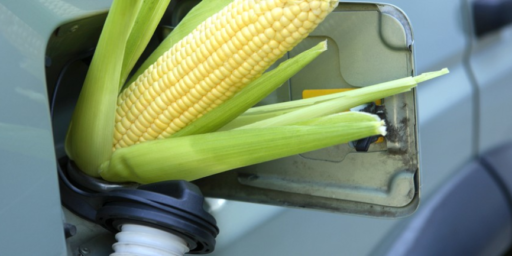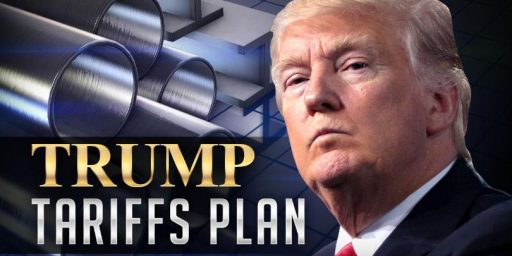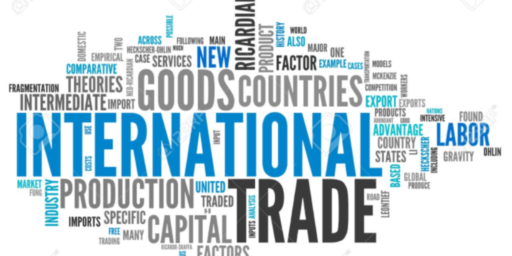TERROR SUBSIDIES?
Thomas Friedman makes an interesting case for ending farm subsidies: It’ll help fight terrorism.
Sure, poverty doesn’t cause terrorism — no one is killing for a raise. But poverty is great for the terrorism business because poverty creates humiliation and stifled aspirations and forces many people to leave their traditional farms to join the alienated urban poor in the cities — all conditions that spawn terrorists.
I would bet any amount of money, though, that when it came to deciding the Bush team’s position at Cancun, no thought was given to its impact on the war on terrorism. Wouldn’t it have been wise for the U.S. to take the initiative at Cancun, and offer to reduce our farm subsidies and textile tariffs, so some of the poorest countries, like Pakistan and Egypt, could raise their standards of living and sense of dignity, and also become better customers for U.S. goods? Yes, but that would be bad politics. It would mean asking U.S. farmers to sacrifice the ridiculous subsidies they get from our federal government ($3 billion a year for 25,000 cotton farmers) that make it impossible for foreign farmers to sell here.
And one thing we know about this Bush war on terrorism: sacrifice is only for Army reservists and full-time soldiers. For the rest of us, it’s guns and butter. When it comes to the police and military sides of the war on terrorism, the Bushies behave like Viking warriors. But when it comes to the political and economic sacrifices and strategies that are also required to fight this war successfully, they are cowardly wimps. That is why our war on terrorism is so one-dimensional and Pentagon-centric. It’s more like a hobby–something we do only until it runs into the Bush re-election agenda.
“If the sons of American janitors can go die in Iraq to keep us safe,” says Robert Wright, author of “Nonzero,” a book on global interdependence, “then American cotton farmers, whose average net worth is nearly $1 million, can give up their subsidies to keep us safe. Opening our markets to farm products and textiles would be critical to drawing many nations–including Muslim ones–more deeply into the interdependent web of global capitalism and ultimately democracy.”
While I’m opposed to both farm subsidies and terrorism, this connection strikes me as a mite too clever. For one thing, wouldn’t ending farm subsidies tend to lower the prices of U.S. agricultural goods? We’re currently propping up prices by paying farmers not to grow crops or produce milk. And the effect on prices would almost certainly have to be small enough that it wouldn’t suddenly make Pakistan a world leader in agriculture, anyway. It’s not like the U.S. is the most likely market for farm products.






I think you need to familiarize yourself with just how big these subsidies are…some of them are huge. Rice farmers in Japan are subsidized with something like 80% of their income. I’m not sure that we have anything that egregious here, but farm subsidies are not simply a matter of a 5% subsidy!
Ross,
I’m not conversant in the scales, but I’m aware that several states–notably Japan and France–have massive protectionist policies. But, even though his subject was an international accord, Friedman was talking about U.S. subsidies which, even if eliminated, wouldn’t have a HUGE impact on the world market in terms of the ability to export to the U.S.
I agree that Friedmand’s arguments are good, but a bit of a stretch.
In answer to your question on prices, yes, we would pay a bit less on average, and a lot less for certain items (e.g. sugar). Current recipients of subsidies take a hit in two ways:
– loss of subsidy income (whether via inflated payment for production, or payment for non-production)
– decrease in the value of land by the present value of the subsidy stream.
The terror-based argument I’m sympathetic to is that pre-industrial societies need some way to develop market-based economies based on what they do best. You’re right that we won’t be huge importers (except in selected products where distortion is worst – again sugar is an example). Europe is the biggest offender by far.
However, our economy is so big that removing our agricultural supports offer huge potential benefits.
—